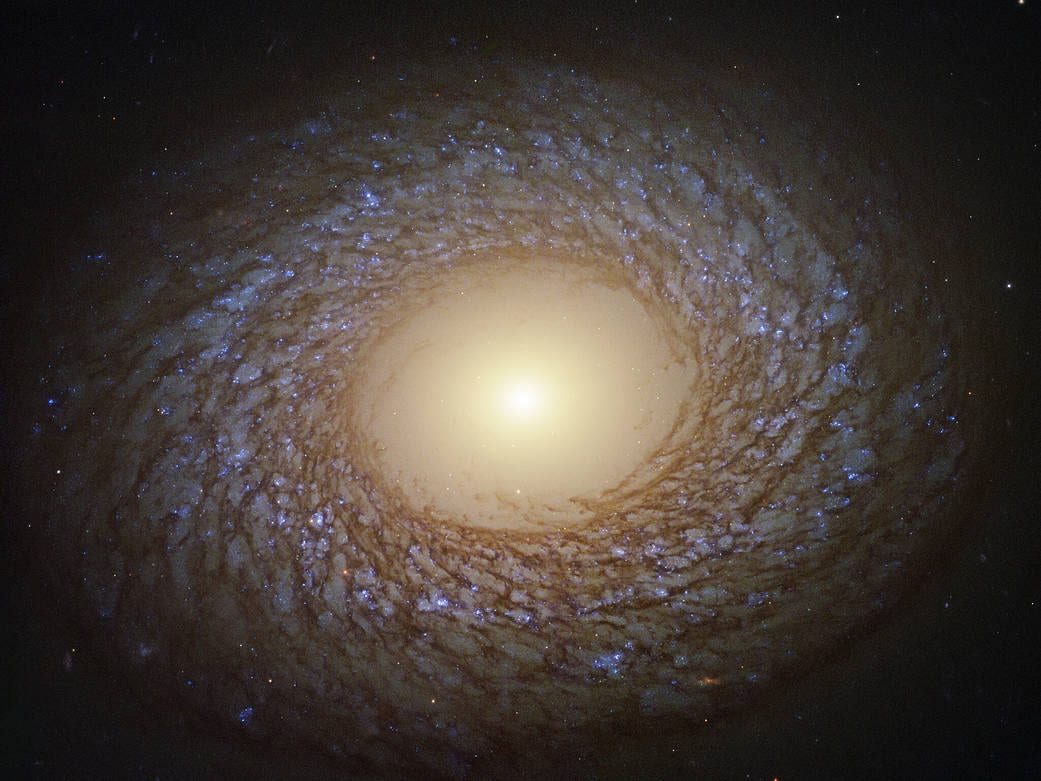Space is full of different shapes, sizes, and colors. There’s the vibrant blue of Earth’s oceans, the cheese-like exterior of the moon, the octopus-esque tentacles of galaxies — the list goes on and on.
Scientists also use the word “flocculent” to describe some galaxies, including one recently captured by the camera on the NASA?ESA Hubble Space Telescope. Translated into English, flocculent basically means fluffy.
Yes, that’s right, the world’s pre-eminent researchers and scientists just described a galaxy as fluffy! And just look at how adorable this fluffy little guy really is:

Photo Credit: ESA/Hubble & Nasa, J. Lee and the Phangs-Hst Team
This striking photograph shows a galaxy that goes by the name NGC 2275. It’s far, far away from us here on Earth, located 67 million light-years away. It’s situated within the Cancer constellation.
NASA noted its “delicate, feathery nature,” which you can see super clearly from this crisp image. Those spiral arms are made up of millions of young stars, contrasted with lanes of dark space dust. The stars are young and hot, which makes them appear blue.
According to NASA….
“Complexes of these hot, blue stars are thought to trigger star formation in nearby gas clouds.
The overall feather-like spiral patterns of the arms are then formed by shearing of the gas clouds as the galaxy rotates.”
The space agency says that the fluffiness also indicates relatively quiet star formation in the galaxy.
NASA says,
“There is virtually no star formation in the central part of the galaxy, which is dominated by an unusually large and relatively empty galactic bulge, where all the gas was converted into stars long ago.”
How cool is that? The Hubble telescope has really opened up our ability to analyze and understand space, including these interesting little details.
What’s your favorite element of space? Do you have a particular planet or feature that you’re particularly partial to for some reason?
We’d love to hear from you!
Let us know in the comments!
The post This Fluffy Galaxy Captured by the Hubble Telescope’s Camera Is Truly Amazing appeared first on UberFacts.